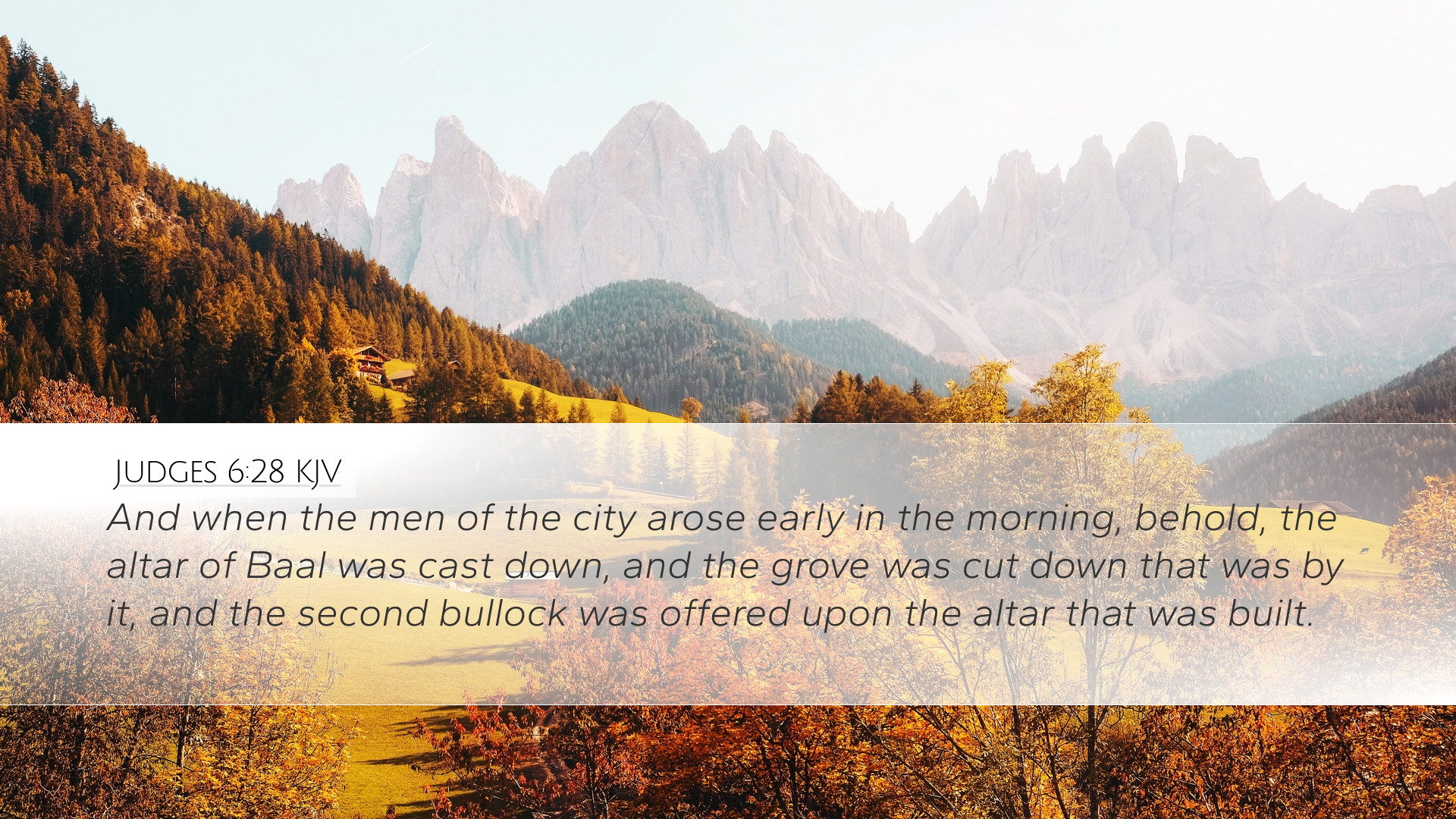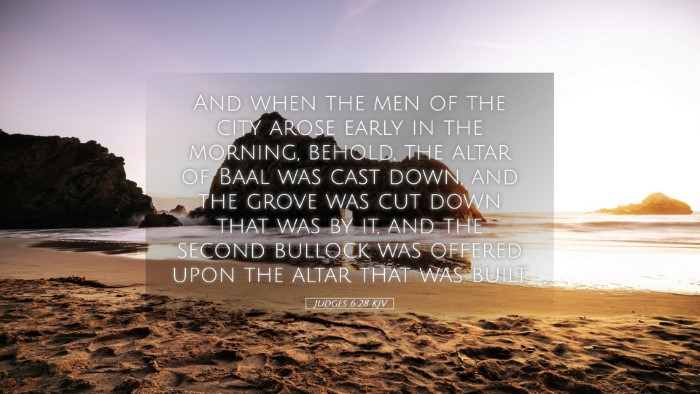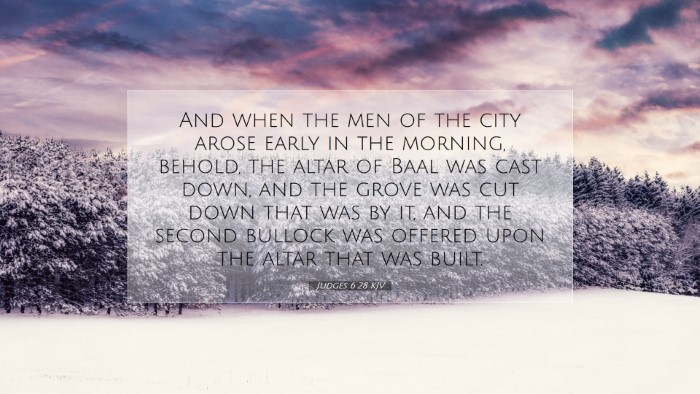Commentary on Judges 6:28
Verse Context: Judges 6:28 states, "And when the men of the city arose early in the morning, behold, the altar of Baal was cast down, and the grove was cut down that was by it, and the second bullock was offered upon the altar that was built." This verse occurs in a pivotal moment in the life of Gideon, marking a significant confrontation with idolatry in Israel.
Introduction
The narrative surrounding Judges 6:28 offers profound insights into the spiritual state of Israel and the bold initiatives of Gideon. This commentary synthesizes the views of prominent theologians from public domain commentaries to elucidate the implications of this verse within a broader biblical context.
Thematic Overview
This verse encapsulates several key themes: the destruction of idolatry, the courage of God’s chosen leaders, and the implications of divine mandate versus popular opinion. Through these themes, the text speaks to the heart of theological education and pastoral practice.
Destruction of Idolatry
Albert Barnes emphasizes the necessity of destroying false worship to restore true worship of Yahweh. In Gideon’s act of tearing down the altar of Baal, we see a deliberate rejection of the idolatry that had ensnared the hearts of the people of Israel. This act resembled a prophetic declaration against the prevailing culture of idolatry. Matthew Henry similarly notes that Gideon’s actions were not just for personal piety but for communal reform. The tearing down of the altar revealed a clear message: the exclusivity of worship due to the one true God.
Idolatry in Current Context
This theme has immediate relevance for contemporary believers. Adam Clarke highlights that the struggle against idolatry is not solely historical; it resonates with modern forms of worship that deviate from biblical truths. Pastors and theologians are challenged to examine the modern idols that can seduce congregations, such as materialism, secularism, and even anthropocentrism.
Courage of God’s Chosen Leader
The act of Gideon in Judges 6:28 is not merely an act of destruction but an expression of courage. Matthew Henry comments on Gideon’s fear and timidity, suggesting that his obedience, amidst overwhelming opposition, exemplifies genuine faith. This theme of courage under pressure serves as a vital lesson for both leaders and laypersons in the faith community.
Models of Leadership
Barnes further illustrates that leaders may often face backlash when confronting popular yet erroneous beliefs. Gideon’s risk in dismantling the altar of Baal serves as a call to modern leaders to stand firm against prevailing cultural norms that contradict the gospel. It emphasizes the need for pastors to foster environments of encouragement, where courage can flourish in tackling contemporary issues of faith.
Divine Mandate vs. Popular Opinion
One of the striking elements in Judges 6:28 is the tension between divine commands and the clamor of public opinion. Adam Clarke notes that Gideon was fully aware of the likely repercussions he would face from his fellow countrymen yet proceeded anyway, guided by divine instruction. This illustrates a critical tension believers often navigate—obeying God’s call while facing societal backlash.
Application for Believers
This dynamic is particularly relevant given the current social landscapes that challenge Christian values. Henry proclaims that believers today should take courage from Gideon’s faithfulness to stand firm upon biblical truths, regardless of societal pressures or potential consequences. This remains a foundational principle for both theological students and seasoned pastors.
The Symbolism of the Altar
The altar represents a focal point of worship and community identity. When Gideon destroys the altar of Baal, it signifies a decisive break from the past. Barnes asserts that this act acts as a catalyst for change within Israel. It reflects a deeper theological truth about the importance of worship centered on God and goes beyond mere ritualistic practices.
Worship and Identity
Contemporary worship practices must similarly reflect a commitment to genuine relationship with God. Clarke suggests that modern altars—be they physical places or metaphorical commitments—must also align with true worship. This calls pastors and faith communities to evaluate their worship practices and ensure they honor the one true God.
Conclusion
Judges 6:28 is a compelling narrative that transcends its historical context, inviting contemporary believers to ponder the implications of Gideon’s actions. The destruction of idols, the courage to follow God’s call, and the challenge of adhering to divine mandates amidst opposition serve as abiding lessons for the Church today.
As we reflect on this text, let us imbue our worship with authenticity, courageously confront the idols of our times, and seek transformation through obedience to God’s Word. In doing so, we honor the heritage of faith exemplified in the life of Gideon.


